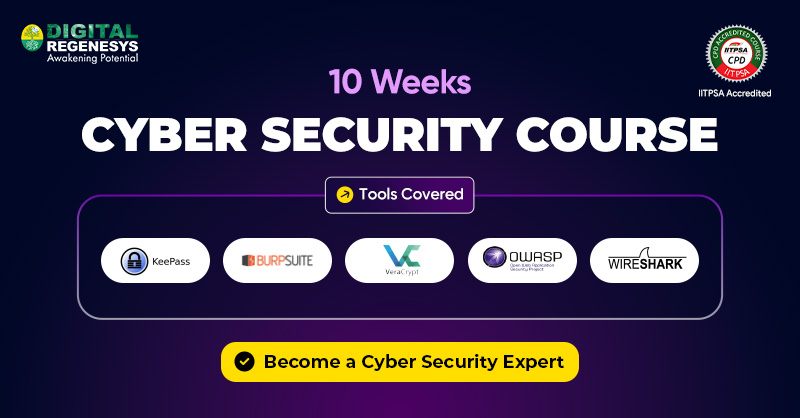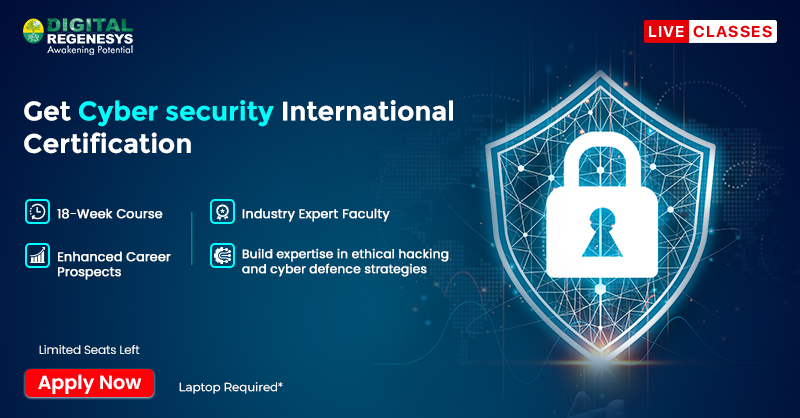Unlock Your Career Potential with Online Cybersecurity Law Training

The online world is growing at an incredible pace, and with it comes a rising need for professionals who understand both technology and the laws that govern it. Organisations today face constant challenges from cyber threats, data breaches, and strict compliance regulations. Experts who can handle these complex issues are in high demand, making cybersecurity law a valuable and rewarding field for career growth.
In this article, we explore how online cybersecurity law training can equip you with the knowledge, skills, and credentials to advance your career. It can help you become a key player in protecting organisational data and ensuring legal compliance.

Why Cybersecurity Law Matters in This Digital Era
Cybersecurity law plays a crucial role in defining the rules and responsibilities for businesses and individuals in the digital space. With the rise of cyber threats, such as hacking, data breaches, and ransomware, understanding legal frameworks is crucial for organisations to remain compliant with regulations while protecting sensitive information.
Professionals trained in cybersecurity law can advise on data protection policies, handle incidents in a legally compliant manner, and develop strategies that mitigate both legal and financial risks.
Here are key aspects of cybersecurity law professionals should understand:
- Data protection regulations (e.g., GDPR, HIPAA)
- Cybercrime and fraud prevention
- Legal frameworks for incident response
- Compliance audits and risk management
- Intellectual property and digital rights
Benefits of Online Cybersecurity Law Training
Online training provides learners with the flexibility to study at their own pace while gaining hands-on knowledge of cybersecurity law. Unlike traditional courses, online programs often combine interactive modules, real-life case studies, and practical assignments, ensuring that participants can immediately apply concepts in real-world scenarios.
Additionally, these courses connect learners with industry experts, offering mentorship and networking opportunities. With certification from a recognised institute, graduates demonstrate credibility, making them attractive candidates for various roles across industries.
The primary benefits include:
- Flexible learning schedule
- Exposure to practical case studies
- Networking opportunities with experts
- Enhanced employability through certification
- Career advancement in compliance and legal tech
Get insights on How Do I Start A Career In Cyber Security?
Career Opportunities in Cybersecurity Law
Completing an online cybersecurity law course opens doors to multiple career paths. Organisations across sectors require professionals who can navigate complex legal and cybersecurity landscapes. Career options include compliance officer, cybersecurity consultant, data protection officer, and legal advisor specialising in digital law.
These roles often come with competitive salaries and opportunities for growth. Furthermore, professionals equipped with both technical and legal expertise can play pivotal roles in policy development, risk assessment, and cyber governance, making them indispensable to modern organisations.
Key career opportunities include:
- Compliance Officer
- Cybersecurity Consultant
- Data Protection Officer
- Legal Advisor in Digital Law
- Risk and Governance Specialist

Skills You Will Gain from Cybersecurity Law Training
A strong foundation in cybersecurity law equips you with a mix of technical, legal, and analytical skills. Learners develop the ability to assess security policies, understand regulatory requirements, and effectively implement compliance strategies to ensure security and regulatory compliance.
Courses often cover topics such as cybercrime investigation, risk management, privacy laws, and the basics of ethical hacking. By mastering these skills, professionals can bridge the gap between IT teams and legal departments, ensuring that security measures align with legal mandates. These competencies make graduates valuable assets in any organisation that deals with digital data.
Skills gained include:
- Understanding of privacy and data protection laws
- Risk assessment and compliance implementation
- Cybercrime detection and response
- Legal advisory for IT teams
- Strategic planning for digital security
Advantages of Online Certification
Obtaining an online certification in cybersecurity law demonstrates a commitment to professional development. Employers often prefer certified individuals as they bring validated expertise to the table. Online certification programs typically offer flexible learning paths, making it easier for working professionals to enhance their skills without interrupting their careers.
These programs often include practical exercises, case studies, and assessments that prepare learners for real-world challenges. Certification also enhances credibility, making it easier to negotiate higher salaries, pursue leadership roles, or transition into specialised areas within cybersecurity and compliance.
Certification advantages include:
- Enhanced professional credibility
- Career growth and promotion opportunities
- Recognition of specialised knowledge
- Flexibility for working professionals
- Competitive advantage in the job market
Emerging Trends in Cybersecurity Law
As technology evolves, cybersecurity law is adapting to address new challenges. Artificial intelligence, cloud computing, blockchain, and IoT devices have introduced novel security and legal considerations.
Professionals trained in cybersecurity law must stay current on emerging regulations, including AI governance, cross-border data transfers, and digital privacy laws. Understanding these trends enables organisations to remain compliant, mitigate risks, and foster trust with clients. Staying ahead in this dynamic field ensures that you remain valuable in a rapidly changing professional landscape.
Emerging trends include:
- AI governance and ethics
- Cloud security compliance
- Blockchain and digital asset regulations
- IoT device security policies
- Cross-border data privacy laws
Explore details on Is Cyber Security a Good Career?
How to Choose the Right Online Cybersecurity Law Course
Selecting the right course is critical to achieving your career goals. Look for programs that offer comprehensive coverage of cybersecurity law topics, including data privacy, cybercrime legislation, and regulatory compliance. Verify accreditation, industry recognition, and opportunities for practical learning.
Reviews, alumni success stories, and mentorship options also provide insights into the course’s quality. Additionally, courses that provide real-world case studies and hands-on exercises prepare you better for workplace challenges, ensuring that your learning translates into career advancement.
Tips for selecting a course:
- Verify accreditation and industry recognition
- Ensure comprehensive topic coverage
- Evaluate hands-on learning opportunities
- Check for mentorship and networking options
- Review alumni success stories
Know more about Who Should Consider a Cybersecurity Course for Personal Knowledge.

Conclusion
Online cybersecurity law training equips professionals with a unique blend of technical knowledge and legal expertise that is highly sought after in today’s digital economy. By learning how to navigate legal frameworks, protect sensitive data, and ensure compliance with complex regulations, participants gain a competitive edge in the job market.
These skills not only improve employability but also prepare professionals for leadership roles in cybersecurity and compliance. Additionally, online courses provide the flexibility, practical experience, and networking opportunities needed to succeed.
Elevate your career with the Digital Regenesys Cybersecurity Certificate Course, designed to empower learners with essential skills and certification that opens doors to high-demand roles in the digital security landscape.
Visit Digital Regenesys to explore the courses and upskill your career today.
Last Updated: 8 October 2025
